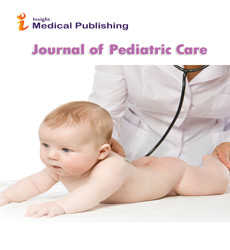Advances in Neonatal Intensive Care: Improving Survival and Quality of Life in Preterm Infants
Rohan Mehta
Department of Pediatrics, All India Institute of Medical Sciences, New Delhi, India
Published Date: 2025-02-28DOI10.4172/2469-5653.11.1.180
Received date: February 03, 2025, Manuscript No. ipjpc-25-20816; Editor assigned: February 05, 2025, PreQC No. ipjpc-25-20816 (PQ); Reviewed date: February 17, 2025, QC No. ipjpc-25-20816; Revised date: February 22, 2025, Manuscript No. ipjpc-25-20816 (R); Published date: February 28, 2025, DOI: 10.4172/2469-5653.11.1.180
Citation: Mehta M (2025) Advances in Neonatal Intensive Care: Improving Survival and Quality of Life in Preterm Infants. J Pediatr Vol.11 No.1: 180
Introduction
Preterm birth, defined as delivery before 37 weeks of gestation, remains a major global health challenge, accounting for significant neonatal morbidity and mortality. Advances in Neonatal Intensive Care (NICU) over the past few decades have transformed the survival prospects of preterm infants, particularly those born at the limits of viability. These improvements are not limited to survival alone; they extend to enhancing the quality of life through strategies that support neurodevelopment, minimize complications, and promote family-centered care. This article reviews the major advances in neonatal intensive care and their impact on both survival and long-term outcomes. Respiratory distress is the most common complication of prematurity, primarily due to surfactant deficiency and underdeveloped lungs. Advances in mechanical ventilation, including high-frequency oscillatory ventilation and non-invasive modalities such as Continuous Positive Airway Pressure (CPAP), have significantly reduced lung injury. The introduction of exogenous surfactant therapy has been particularly revolutionary, decreasing the incidence of respiratory distress syndrome and improving survival rates in extremely preterm infants [1].
Description
Optimal nutrition is critical for supporting the rapid growth and brain development of preterm infants. Early initiation of enteral feeding with motherâ??s milk, often fortified to meet increased nutritional demands, has been shown to improve growth and cognitive outcomes. When breast milk is unavailable, donor human milk is recommended over formula due to its protective effects against necrotizing enterocolitis. Parenteral nutrition has also advanced with tailored formulations that provide precise amounts of protein, fat, and micronutrients, helping to mimic intrauterine growth patterns. Preterm infants are highly vulnerable to infections due to immature immune systems and invasive interventions in the NICU [2].
Advances in infection control practices-such as improved hand hygiene, use of probiotics, and antibiotic stewardship programs-have reduced the incidence of sepsis. The development of antimicrobial-coated catheters and targeted screening protocols has further decreased infection-related morbidity and mortality, contributing to improved long-term outcomes. Survival of preterm infants is only meaningful if accompanied by improved neurodevelopmental outcomes. Innovations in NICU care now emphasize developmental support through practices such as minimal handling, noise and light reduction, and kangaroo mother care (skin-to-skin contact). Early involvement of occupational and physical therapists ensures stimulation of motor and sensory pathways, while strategies like family-integrated care improve parent-infant bonding and emotional well-being [3].
Continuous monitoring of vital signs, cerebral oxygenation, and metabolic parameters has become more sophisticated with advances in technology. Near-infrared spectroscopy (NIRS) allows for real-time assessment of brain oxygenation, helping clinicians prevent hypoxic-ischemic injury. Automated systems for glucose monitoring and thermoregulation also enhance precision in NICU management, reducing risks of hypoglycemia, hypothermia, and other metabolic disturbances [4].
Targeted pharmacological interventions have further improved outcomes in preterm infants. Caffeine therapy has become a standard treatment for apnea of prematurity, reducing the need for prolonged ventilation and lowering the risk of bronchopulmonary dysplasia. Advances in neonatal pharmacology also include refined dosing strategies for analgesics, antibiotics, and cardiovascular drugs, tailored to the unique physiology of premature infants. The integration of genomics and precision medicine into neonatal care is emerging as a promising frontier. These personalized approaches hold potential for transforming neonatal care from reactive to proactive [5].
Conclusion
Advances in neonatal intensive care have dramatically improved the survival of preterm infants, transforming once-fatal conditions into manageable challenges. Beyond survival, a growing emphasis on neurodevelopment, family-centered care, and long-term quality of life highlights the holistic progress of NICU practices. However, disparities in access, ethical complexities, and emerging challenges underscore the need for continued innovation and equity-driven policies. By integrating medical, technological, and social strategies, neonatal intensive care will continue to enhance the lives of preterm infants and their families worldwide.
Acknowledgement
None.
Conflict of Interest
None.
References
- Nilsen RM, Vik ES, Rasmussen SA, Small R, Moster D, et al. (2018). Preeclampsia by maternal reasons for immigration: A population-based study. BMC Pregnancy Childbirth 18: 423.
Google Scholar Cross Ref Indexed at
- Urquia, M. L, Glazier, R. H, Gagnon, A. J, Mortensen, L. H, Nybo Andersen, A. M, Janevic, T, ... & ROAM Collaboration. (2014). Disparities in preâ?Âeclampsia and eclampsia among immigrant women giving birth in six industrialised countries. BJOG121(12: 1492-1500.
Google Scholar Cross Ref Indexed at
- Cohen S, Janicki-Deverts D, Doyle WJ, Miller GE, et al. (2012). Chronic stress, glucocorticoid receptor resistance, inflammation and disease risk. Proc Natl Acad Sci109: 5995-5999.
Google Scholar Cross Ref Indexed at
- Scholaske L, Brose A, Spallek J, Entringer S. (2019). Perceived discrimination and risk of preterm birth among Turkish immigrant women in Germany. Soc Sci Med236: 112427.
Google Scholar Cross Ref Indexed at
- Chaiworapongsa T, Chaemsaithong P, Yeo L, Romero R. (2014). Pre-eclampsia part 1: Current understanding of its pathophysiology. Nat Rev Nephrol10: 466-480.
Open Access Journals
- Aquaculture & Veterinary Science
- Chemistry & Chemical Sciences
- Clinical Sciences
- Engineering
- General Science
- Genetics & Molecular Biology
- Health Care & Nursing
- Immunology & Microbiology
- Materials Science
- Mathematics & Physics
- Medical Sciences
- Neurology & Psychiatry
- Oncology & Cancer Science
- Pharmaceutical Sciences
